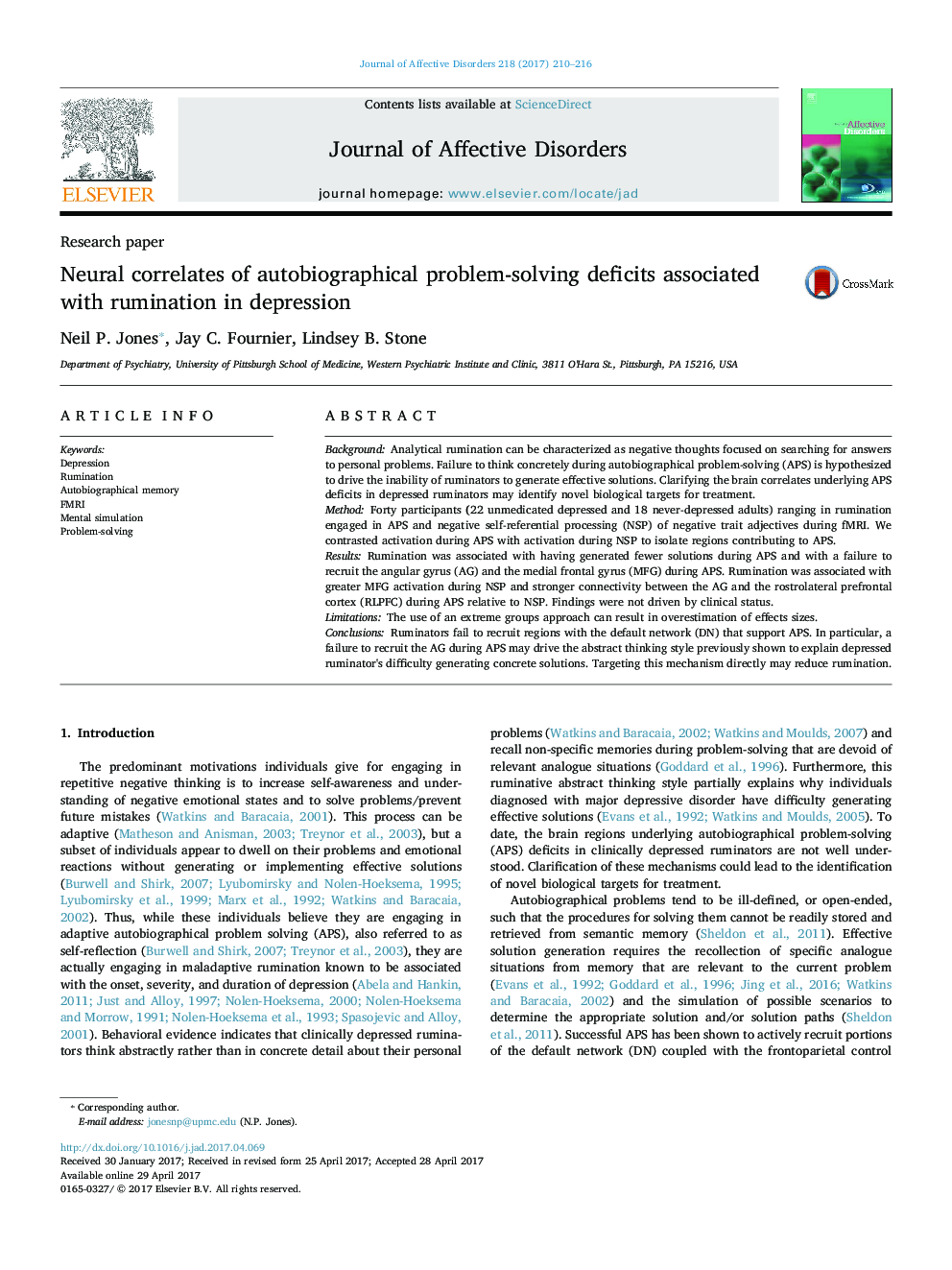| Article ID | Journal | Published Year | Pages | File Type |
|---|---|---|---|---|
| 5721949 | Journal of Affective Disorders | 2017 | 7 Pages |
â¢Rumination is association with poor autobiographical problem solving (APS).â¢Rumination is associated with decreased activation in the angular gyrus during APS.â¢Analyzing the content of rumination is needed to inform default network function.
BackgroundAnalytical rumination can be characterized as negative thoughts focused on searching for answers to personal problems. Failure to think concretely during autobiographical problem-solving (APS) is hypothesized to drive the inability of ruminators to generate effective solutions. Clarifying the brain correlates underlying APS deficits in depressed ruminators may identify novel biological targets for treatment.MethodForty participants (22 unmedicated depressed and 18 never-depressed adults) ranging in rumination engaged in APS and negative self-referential processing (NSP) of negative trait adjectives during fMRI. We contrasted activation during APS with activation during NSP to isolate regions contributing to APS.ResultsRumination was associated with having generated fewer solutions during APS and with a failure to recruit the angular gyrus (AG) and the medial frontal gyrus (MFG) during APS. Rumination was associated with greater MFG activation during NSP and stronger connectivity between the AG and the rostrolateral prefrontal cortex (RLPFC) during APS relative to NSP. Findings were not driven by clinical status.LimitationsThe use of an extreme groups approach can result in overestimation of effects sizes.ConclusionsRuminators fail to recruit regions with the default network (DN) that support APS. In particular, a failure to recruit the AG during APS may drive the abstract thinking style previously shown to explain depressed ruminator's difficulty generating concrete solutions. Targeting this mechanism directly may reduce rumination.
